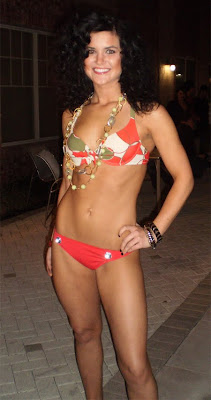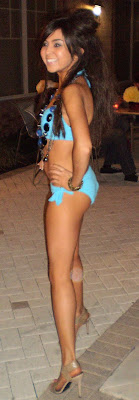Disclaimer: I've never written a book review before.In fact, book reviews are usually the section of the magazine or newspaper that I skip while reading. I don't like people telling me what to read, so reviews are dreadfully boring. Same with book clubs. Generally, I'm the person that goes to the library and pulls out books from the shelves because of their covers. I read the flap blurb, and then I decide whether or not to check it out.
So why am I reviewing a book? Because
after reviewing the film An Education , something amazing happened. The publicist for the publishing company of the memoir, from which
the film was based and took its name, found my review, and asked me if I would like to do a follow-up review of the book. Needless to say, I have been overjoyed that
Atlas & Co. liked my post about the film. Ever since I received the book, it has been burning a hole in my purse. I finally finished Lynn Barber's memoir
An Education last Friday night.

Barber, a British journalist who began her career at
Penthouse, starts out by explaining her upbringing: she notes that the Barber family has no ancestors to brag about, and that she has "survived" since her birth in 1944. Barber also confides that she is not a slave to facts, or very kind to her elderly parents. Barber's father served in World War II, and became a lawyer upon his return. Barber refers to him as "socially untamed." Her "beta brained" mother taught her the art of elocution (proper accent), as to not have any other accent be detrimental to her future. Barber practices elocution to live up to the expectations of her folks until another girl becomes her mother's prized pupil. Her parents stress schooling as her only way up in life, and thus stressed perfection. This becomes important as she grows older and wants to read English at Oxford until a man, Simon, steps into her life.
Barber admits that "My life might have turned out differently if I had just said no." While only 26-pages of the book are dedicated to
what the film covered, the second chapter sets the tone for the rest of the novel. Her father, who has a reputation for grilling Barber's dates, lets 16-year-old Barber go on a date with Simon, who "said he was twenty-seven, but probably in his late thirties." Needless to say, Simon wins her parents over with his charm. This charm takes Barber on a fantastical ride for the next two years: dinners, theatres, concerts, trips to Paris. Barber learns to never ask about what Simon does with his property business, which includes a fellow by the name of Danny and his delightful girlfriend Helen. Barber learns that Simon and Danny are, more or less, disciples of the infamous
Peter Rachman. Barber's parents, who she does not leave unscathed throughout the novel, push her towards Simon: why go to Oxford when you can have a husband? Alas, Simon is not what he seems and after proposing marriage, his sham begins to spiral, leaving Barber's innocence forever lost.
The rest of the book follows her mantra that other people are ultimately unknowable, and she puts this to work in her journalism career. Barber first starts at
Penthouse, then
Sunday Express,
Independent on Sunday,
Vanity Fair,
The Sunday Times,
The Daily Telegraph, and
The Observer. Reading views on feminism from someone that lived and wrote during the feminist movement, although with a twinge of sadness, were insightful and hilarious. I was surprised to find out that Barber authored the wildly successful sex-manual
How To Improve Your Man In Bed (and forgot to ask for rights to the royalties).
Barber also tells the story of how she met her husband, David Cardiff, and how, through him, she learns the true value of family. David, who was raised through boarding schools as a child, is more sentimental than Barber, and lessens her cynical views on life. Together, Barber and David raise two daughters and are husband-and-wife until David's death. Reading about David's illness (myelofibrosis, a bone marrow disorder) was a little hard to stomach, but moving, as the short autobiography changes tone. You see Barber's human side, made up of uncertainty and anxiousness, come through.
Memoirs are the sort of books that take me days to read, as they're personal vignettes of someone's life. I like to think of them as the only way I will ever get to know the author, so I try to drag them out, so they are not as quick of a read. Sometimes I found this particular memoir evoked personal emotions; I laughed, I cried, I became angry at a slew of characters and then found myself cheering them on. In the final pages, when Barber makes a post-mortem accusation of infidelity to David, I was in awe of how Barber threaded the pieces together back to Simon, the man who gave her the education that led her to writing the memoir in the first place.
Straight-forward and candid,
An Education is a lovely breeze from across the pond, and reminded me of listening to my grandmothers gossip about what they should have done and, more importantly, what they did.
An Education
by Lynn Barber
184 pages, Atlas & Co, $13.oo (paperback)



 This time around, we also met boys from Jersey...
This time around, we also met boys from Jersey...


































